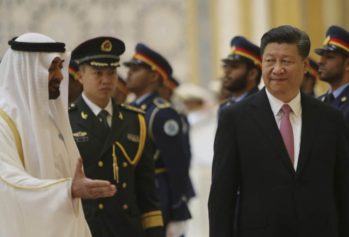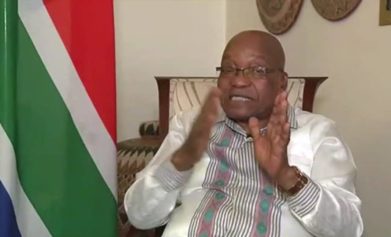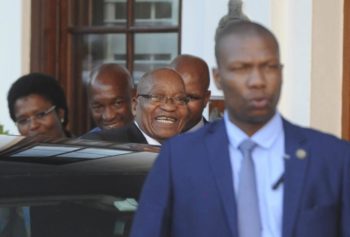Chinese President Xi Jinping used his first overseas trip to travel to Africa and address head-on the growing perception that his nation’s expanding presence in Africa is leading to a new form of colonialism.
In a speech in Tanzania, the new president promised more equality in the trade relationship with Africa and said China’s presence would lead to more development on the continent. The mere fact that Xi chose Africa for his first trip underscored the importance of African oil and natural resources to the Chinese economy.
“Africa belongs to the African people,” Xi said. “In developing relations with Africa, all countries should respect Africa’s dignity and independence.”
Xi is scheduled to meet today in South Africa with that country’s president, Jacob Zuma, and then attend a summit of the BRICS countries—Brazil, Russia, India, China and South Africa—on Thursday in the South African port city of Durban. The BRICS nations will be discussing plans to create a multinational lender to rival the World Bank.
China’s trade with Africa reached nearly $200 billion in 2012, an increase of more than 19 percent from 2011, according to the New York Times, quoting from Chinese government figures. Most of that figure is made up of oil, ore and other commodities from Angola, Nigeria and other resource-rich countries.
There has been a growing chorus of voices, such as Botswana President Ian Khama and Nigerian central bank governor Lamido Sanusi, questioning the imbalance in China’s relationship with Africa.
“So China takes our primary goods and sells us manufactured ones,” Sanusi wrote in the Financial Times. “This was also the essence of colonialism. The British went to Africa and India to secure raw materials and markets. Africa is now willingly opening itself up to a new form of imperialism.”
But China has plenty of defenders.
Adams Bodomo, African Studies director at Hong Kong University, says claims of neo-colonialism are overblown and that China’s influence “was more positive than negative.”
“In 10 years, China has built a lot more infrastructure than, for example, Britain did in my own country— Ghana—for 100 years,” Bodomo said.
Tanzanian President Jakaya Kikwete was dismissive of the criticisms. He told Chinese reporters that Africa’s relationship with China was no different than with any other major power.
“Why when we have relations with the others there is no problem?” Kikwete asked. “But when we have relations with China, oh boy! So many questions!”
Tanzania looks “for investments, technology, markets and development assistance,” Kikwete said, adding: “This is all we are getting from China. Our relationship with China is about that. With the U.S. is about that, with Europe is about that, with Japan is about that, with India is about that. So if the issue is neo-colonialism then it is with everybody,” he said.
“Trade has increased tremendously between China and Tanzania,” he said. “And also, I agree with you, that China sells more to Tanzania than what Tanzania sells to China. This is something that we need to change. But how do you change that? We have an acute supply-side constraint. There is so much we can do but we cannot do it now because our major constraint is investment.”


